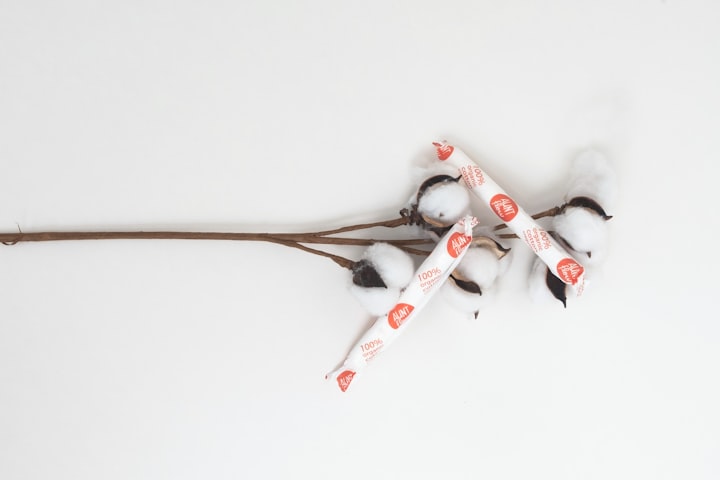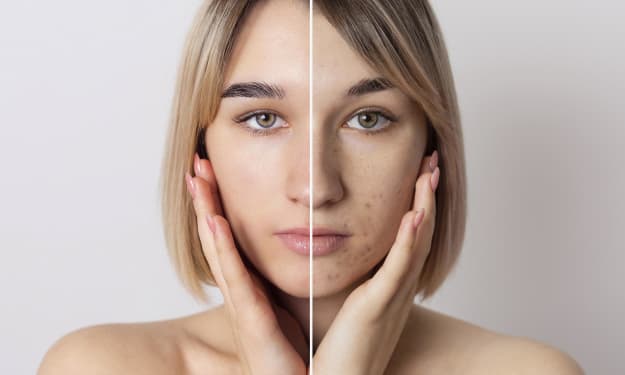How to Spot a Problematic Period Resource
A quick detective guide for you!
‘Tis the season of chocolates and hearts - what better way is there to show yourself love than to engage with period health resources and empower yourself in learning about your cycle? I might be biased but I don’t think there is a better way!
Information available about menstrual health and equity is growing, and there are so many more platforms, books, podcasts and creators out there dedicated to spreading the word. If I had to compare this to 10 years ago, I would say the change is astounding – even if there is still much work to be done.
However, while having more information is great, the risk of misinformation is just as high. Not all creators, podcasters, writers and more have the experience and expertise necessary to share menstrual health resources and many platforms don’t have the knowledge (or sometimes desire) to filter through the work. The nature of the beast, I suppose.
So how can you do your own sleuthing to identify resources that might be problematic? I did the reviewing in my spare time so you don’t have to!
1. The work uses primarily “women”, “feminine” and “lady” in their resource. Transphobic or trans-exclusionary discourse is not welcome here. We know that periods are not reserved for folks who identify as women. Trans folks can and do have periods in the same way that cis folks do, with an added layer of discrimination that makes it difficult for them to access care and products.
It’s also important to consider that not all menstruators are adults, and not all women have periods. Think children – the average age of menarche (the first menstrual period) is between ages 9-16, and I would not consider this stage of puberty the complete transition into womanhood. Having a period is part of growth and development, and “becoming a woman” is a much bigger process than just a monthly bleed.
Women go through menopause, where periods naturally stop – and these women are just as worthy of discourse around menstrual and hormone health. Some women also no longer have uteruses, for personal and medical reasons. And not to mention, single dads or non-binary parents who need to be able to speak to their child about menstruation – the patriarchy dismisses this population that needs to have access to inclusive period health resources.
2. The resource only talks about periods in the context of sex and pregnancy. While having a period certainly is a consideration when to these areas, having a monthly bleed is about much more than both of them. Not all menstruators want to have children but they are still just as deserving of knowledge around what a period is outside of whether or not they are fertile.
Folks of the asexual community also ovulate and have periods, and whether or not they engage in sexual relationships shouldn’t be a barrier to accessing birth control, abortion or other menstrual health content. We should be talking about periods as a regular bodily function, not reducing menstruating bodies to whether or not they procreate.
3. The writing uses incorrect or inappropriate terms to describe anatomy. If you see “yoni”, “coochie”, or “balls”, run and run fast. These seemingly harmless terms can be incredibly harmful. When body parts are labeled incorrectly, the chances are higher that a person will be unable to identify where they experience pain – the vagina and the vulva are not the same, and “yoni” could be both or either of these things.
These terms also feed into the narrative that talking about the genitals and body are shameful or meant to be secret, which is untrue and damaging. Use of these terms over their anatomically correct counterparts may reduce the chance someone will share that they have been sexually assaulted – secrecy hurts people. If you’re a writer of period health resources, you have an obligation to use appropriate terms… and if you don’t know them, access experts to assist.
4. The work is sponsored by, and promotes products from, a specific brand. While discussing period products is part of period talk, narrowing discussion down to just a select type of product can get tricky fast. Not all individuals can use all types of period products, and only promoting a select few removes period health knowledge that is necessary to access care and resources.
Not to mention there can be misinformation regarding period products that are competitors to a brand, increasing fear unnecessarily.
5. The resource discusses periods from a “hygiene” perspective. Periods are not dirty or unhygienic. Similar to the use of inappropriate terminology, speaking about “feminine hygiene” or “sanitary products” creates shame in menstruating communities. Individuals may be more likely to skip out on preventative screening or discussion of health concerns if they feel their period is something to hide. And companies disgustingly use this narrative to sell products, like irritating scented wipes or soaps that can disrupt vaginal pH.
All that being said, a great period resource is one that uses inclusive and correct language, considers all types of period products and care options and avoids shaming its audience into purchasing a product.
If you have a favourite resource, I’d love to see it – share with me on Instagram at @sayyestonourish or by email at [email protected]. And if you loved this article, leave a tip! It helps to support my work as a Period Power Dietitian and menstrual health educator.
About the Creator
Emily the Period RD
I help people with periods navigate menstrual health education & wellness with a healthy serving of sass (and not an ounce of nutrition pseudoscience).







Comments
There are no comments for this story
Be the first to respond and start the conversation.